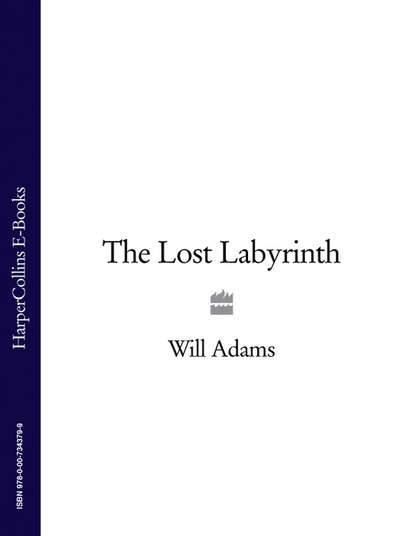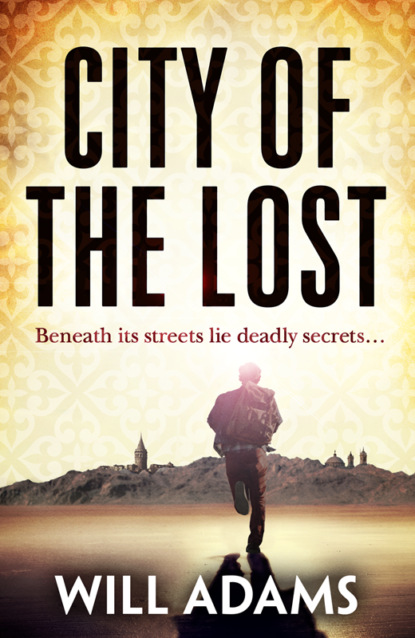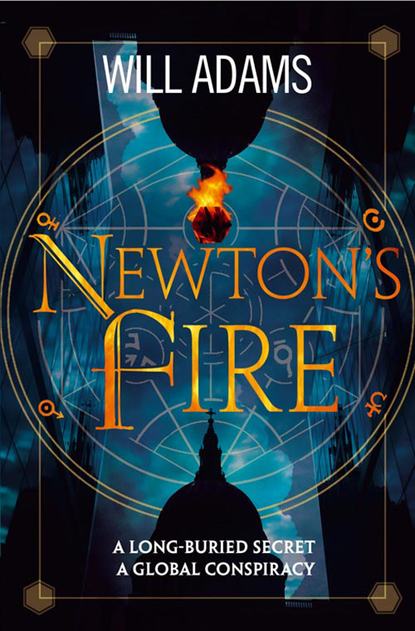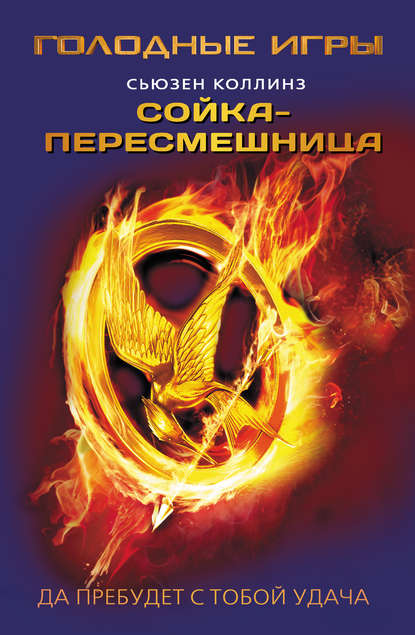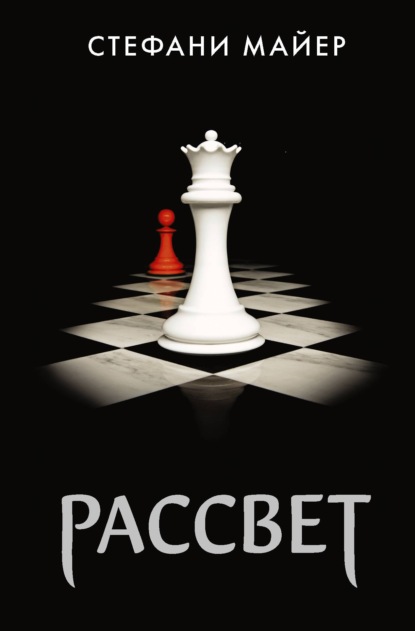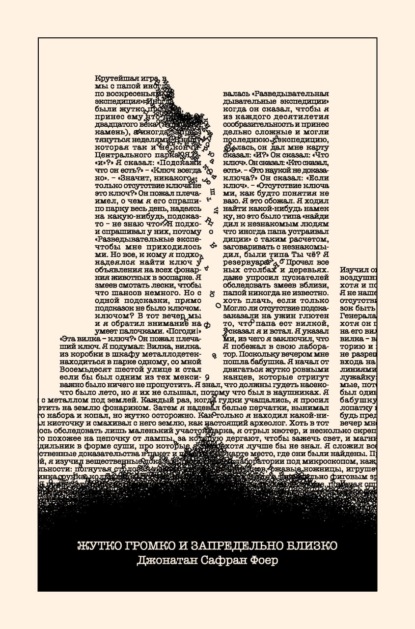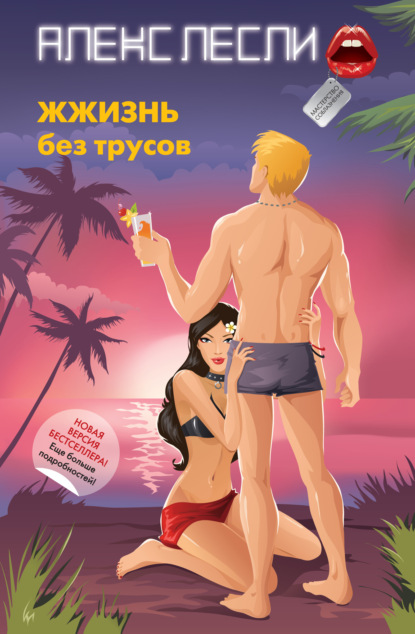
Текст
отзывы: 0 | рейтинг: 0
Полная версия
Полная версия
The Alexander Cipher
Will Adams
Non stop adventure and death defying chases in Will Adam’s outstanding debut novel.It's 318 BC in the deserts of Libya, and Alexander the Great is buried as only a God should be, placed in a golden Sarcophagus in a catacomb of chambers, each packed with diamonds, rubies and gold. This was how he should have remained, but time waits for no-one.2007 and underwater archaeologist Daniel Knox has been on the trail of Alexander's Gold ever since he can remember. When a tomb is uncovered on the construction site of a new hotel, Daniel believes he has found the clue to what he has been working towards for years. But the discovery has alerted two of the most dangerous men in the world, and Daniel is now a marked man.
WILL ADAMS
The Alexander Cipher
For my parents
After his death in Babylon in 323 BC, the body of Alexander the Great was taken in a magnificent procession to Egypt for eventual burial in Alexandria, where it remained on display for some six hundred years.
Alexander’s mausoleum was considered a wonder of the world. Roman emperors including Julius Caesar, Augustus and Caracalla paid pilgrimages. Yet after a series of earthquakes, fires and wars, Alexandria fell into decline and the tomb was lost.
Despite numerous excavations, it has never been found.
Contents
Title Page (#u16de6c37-9faf-586f-ac05-6cd07a3b084f)Dedication (#u93d8e55a-a2b8-5daa-83f6-171166802ee7)Prologue (#u74580d72-b1e4-5e05-ad28-73be0d7fe36e)Chapter One (#uf75b4bcb-7f32-5234-9b14-52fe149a2859)Chapter Two (#ud5a517b5-eb10-579d-a661-a31fd1cb8c5f)Chapter Three (#u2bf9fd30-a5e9-5b6a-9e80-b44fcd13ac1d)Chapter Four (#u0e050342-1f01-540c-8e6e-df70ceaada66)Chapter Five (#u01bd3646-ea32-59d4-8235-21fc19f13dda)Chapter Six (#ud6a04697-c883-593f-a8f6-59c5bcf944a7)Chapter Seven (#ue5eb75f8-b601-5033-92ce-26bd52d4dd82)Chapter Eight (#litres_trial_promo)Chapter Nine (#litres_trial_promo)Chapter Ten (#litres_trial_promo)Chapter Eleven (#litres_trial_promo)Chapter Twelve (#litres_trial_promo)Chapter Thirteen (#litres_trial_promo)Chapter Fourteen (#litres_trial_promo)Chapter Fifteen (#litres_trial_promo)Chapter Sixteen (#litres_trial_promo)Chapter Seventeen (#litres_trial_promo)Chapter Eighteen (#litres_trial_promo)Chapter Nineteen (#litres_trial_promo)Chapter Twenty (#litres_trial_promo)Chapter Twenty-One (#litres_trial_promo)Chapter Twenty-Two (#litres_trial_promo)Chapter Twenty-Three (#litres_trial_promo)Chapter Twenty-Four (#litres_trial_promo)Chapter Twenty-Five (#litres_trial_promo)Chapter Twenty-Six (#litres_trial_promo)Chapter Twenty-Seven (#litres_trial_promo)Chapter Twenty-Eight (#litres_trial_promo)Chapter Twenty-Nine (#litres_trial_promo)Chapter Thirty (#litres_trial_promo)Chapter Thirty-One (#litres_trial_promo)Chapter Thirty-Two (#litres_trial_promo)Chapter Thirty-Three (#litres_trial_promo)Chapter Thirty-Four (#litres_trial_promo)Chapter Thirty-Five (#litres_trial_promo)Chapter Thirty-Six (#litres_trial_promo)Chapter Thirty-Seven (#litres_trial_promo)Chapter Thirty-Eight (#litres_trial_promo)Chapter Thirty-Nine (#litres_trial_promo)Chapter Forty (#litres_trial_promo)Chapter Forty-One (#litres_trial_promo)Epilogue (#litres_trial_promo)Acknowledgements (#litres_trial_promo)COMING SOONG FROM WILL ADAMS (#litres_trial_promo)About the Author (#litres_trial_promo)Copyright (#litres_trial_promo)About the Publisher (#litres_trial_promo)
PROLOGUE (#u8ef3a58b-7d4b-5e05-969f-60505075f603)
The Libyan Desert, 318 BC
There was a freshwater spring at the lowest point of the cave, like a single black nail at the tip of a twisted, charred and mutilated leg. A thick layer of lichen and other scum clotted its surface, barely disturbed in centuries except to ripple and shiver at the touch of one of the insects that lived upon it, or dimple with bubbles of gas belched from deep beneath the floor of the surrounding desert.
Suddenly the skin burst, and the head and shoulders of a man erupted from the water. His face was turned upwards and instantly he gasped huge heaves of life-giving air through his flared nostrils and gaping mouth, as though he’d stayed underwater beyond the limit of his endurance. His breaths didn’t lessen in intensity as the moments passed; rather, they grew ever more desperate, as though his heart was about to burst inside his chest. But at length he reached and passed the worst.
There was no light at all in the cave, not even a phosphorescence of water; and the man’s relief at surviving his underwater flight quickly turned to distress that he’d merely exchanged one mode of death for another. He felt around the edge of the pool until he found a low ledge. He heaved himself up, twisted round to sit upon it. Almost as an afterthought, he reached beneath his soaking tunic for his dagger; but in truth, there was little danger of pursuit. He’d had to fight and kick his way through every inch of that watery escape. He’d like to see that fat Libyan who’d aimed to stick him with his sword try to follow; for sure, he’d cork in the passage, and it wouldn’t spit him out till he’d lost some flesh.
Something whirred past his cheek. He cried out in terror and threw up his hands. The echo was curiously slow and deep for what he’d imagined to be a small cave. Something else flapped past him. It sounded like a bird, but no bird could navigate in such darkness. Perhaps a bat. He’d certainly seen colonies of them at dusk, swarming the distant orchards like midges. His hopes rose. If these were those same bats, there had to be a way out of here. He surveyed the rock walls with his hands, then began to climb the gentlest wall. He wasn’t an athletic man, and the ascent was nightmarish in the dark, though at least the walls were gaunt with holds. When he reached a place from which there was no possible advance, he retreated and found another route. Then another. Hours passed. More hours. He grew hungry and tired. One time he fell crashing to the base, crying out in terror. A broken leg would end him as surely as it would end a mule, but he cracked his head against rock instead, and blackness claimed him.
When he came to, he wasn’t sure for a blessed moment where he was, or why. When memory returned, he felt such despair that he considered returning the way he’d come. But he couldn’t face that passage again. No. Better to press on. He tried the rock wall once more. And again. And finally, on his next attempt, he reached a precarious ledge high above the cavern floor, barely wide enough for him to kneel. He crawled forwards and upwards, the rock-face to his left, nothing at all to his right, only too aware that a single mistake would plunge him to certain death. The knowledge didn’t impede him but rather added sharpness to his concentration.
The ledge closed around him so that it felt as if he was crawling inside the belly of a stone serpent. Soon the darkness wasn’t quite so pure as it had been. Then it grew almost light and he emerged shockingly into the setting sun, so dazzling after his long blindness that he had to throw up a forearm to protect his eyes.
The setting sun! A day at least had passed since Ptolemy’s ambush. He inched closer to the lip, looked down. Nothing but sheer rocks and certain death. He looked up instead. It was still steep, but it looked manageable. The sun would soon be gone. He began to climb at once, looking neither down nor up, contenting himself with progress rather than haste. Patience served him well. Several times the sandstone crumbled in his hand or beneath his foot. The last glow of daylight faded as he reached an overhanging brow. There was no going back now, so he steeled himself, then committed totally to it, hauling himself up with his fingernails and palms and elbows, scrabbling frantically with his knees and feet, scraping his skin raw on the rough rock, until finally he made it over and he rolled onto his back, staring thankfully up at the night sky.
Kelonymus had never claimed to be brave. He was a man of healing and learning, not war. Yet he still felt the silent reproach of his comrades. ‘Together in life; together in death’ – that had been their vow. When Ptolemy had finally trapped them, the others had all taken without qualm the distillation of cherry laurel leaves that Kelonymus had concocted for them, lest torture loosen their tongues. Yet he himself had balked. He’d felt a terrible rush of fear at losing all this before his time, this wonderful gift of life, this sight, this smell, this touch, this taste, the glorious ability of thought. Never again to see the high hills of home, the lush banks of its rivers, the forests of pine and silver fir! Never again to listen at the feet of the wise men in the marketplace. Never to have his mother’s arms around him, or tease his sister, or play with his two nephews! So he’d only pretended to take his poison. And then, as the others had expired around him, he’d fled into the caves.
The moon lit his descent, showing desert all around, making him realise just how alone he was. His former comrades had been shield-bearers in Alexander’s army, dauntless lords of the earth. No place had felt safer than in their company. Without them he felt weak and fragile, adrift in a land of strange gods and incomprehensible tongues. He walked down the slope, faster and faster, the fear of Pan welling in him until he broke into a run and fled headlong before stumbling in a rut and falling hard onto the compact sand.
He had a growing sense of dread as he pushed himself up, though at first he wasn’t sure why. But then strange shapes began to form in the darkness. When he realised what they were, he began to wail. He came to the first pair. Bilip, who’d carried him when his strength had failed outside Areg. Iatrocles, who’d told him wondrous tales of distant lands. Cleomenes and Herakles were next. No matter that they’d already been dead, crucifixion was the Macedonian punishment for criminals and traitors, and Ptolemy had wanted it known that was what he considered these men. Yet it wasn’t these men who’d betrayed Alexander’s dying request about where he was to be buried. It wasn’t these men who’d put personal ambition above the wishes of their king. No. These men had only sought to do what Ptolemy himself should have done, building Alexander a tomb in sight of the place of his father.
Something about the symmetry of the crosses caught Kelonymus’ eye. They were in pairs. All the way along, they were in pairs. Yet their party had been thirty-four. Himself and thirty-three others. An odd number. How could they all be in pairs? Hope fluttered weakly. Maybe someone else had got away. He began to hurry down the horrific avenue of death. Old friends either side, yes; but not his brother. Twenty-four crosses, and none his brother. Twenty-six. He prayed silently to the gods, his hopes rising all the time. Twenty-eight. Thirty. Thirty-two. And none his brother. And no more crosses. He felt, for a moment, an exquisite euphoria. But it didn’t last. Like a knife plunged between his ribs, he realised what Ptolemy had done. He cried out in anguish and rage, and he fell to his knees upon the sand.
When his anger finally cooled, Kelonymus was a different man, a man of fixed and certain purpose. He’d betrayed his oath to these men once already. He wouldn’t betray it again. Together in life; together in death. Yes. He owed them that much. Whatever it took.
ONE (#u8ef3a58b-7d4b-5e05-969f-60505075f603)
I
The Ras Mohammed reefs, Sinai, Egypt
Daniel Knox was dozing happily on the bow when the girl came to stand with deliberate provocation in the way of his afternoon sun. He opened his eyes and looked up a little warily when he saw who it was, because Max had made it clear that she was Hassan al-Assyuti’s for the day, and Hassan had a proud and thoroughly warranted reputation for violence, especially against anyone who dared tread on his turf.
‘Yes?’ he asked.
‘So are you really a Bedouin?’ she gushed. ‘I mean, that guy Max said like you were a Bedouin, but I mean you don’t look it. I mean, don’t get me wrong, you kind of look it, I mean, your complexion and your hair and eyebrows, but …’
It was no surprise she’d caught Hassan’s eye, thought Knox, as she rambled on. He was notoriously a sucker for young blondes, and this one had a charming smile and startling turquoise eyes, as well as an attractive complexion, with its smattering of pale freckles and pinkish hints of acne, and a slender figure perfectly showcased by her lime-green and lemon-yellow bikini. ‘My father’s mother was Bedouin,’ he said, to help her out of her labyrinth. ‘That’s all.’
‘Wow! A Bedouin gran!’ She took this as an invitation to sit. ‘What was she like?’
Knox pushed himself up onto an elbow, squinting to keep out the sun. ‘She died before I was born.’
‘Oh, I’m sorry.’ A damp, blonde lock fell onto her cheek. She swept her hair back with both hands, holding it there in a makeshift ponytail, so that her chest jutted out at him. ‘Were you brought up here, then? In the desert?’
He looked around. They were on the deck of Max Strati’s dive boat, tethered to a fixed mooring way out into the Red Sea. ‘Desert?’ he asked.
‘Tch!’ She slapped him playfully on the chest. ‘You know what I mean!’
‘I’m English,’ he said.
‘I like your tattoo.’ She traced a fingertip over the blue and gold sixteen-pointed star on his right biceps. ‘What is it?’
‘The Star of Vergina,’ answered Knox. ‘A symbol of the Argeads.’
‘The who?’
‘The old royal family of Macedonia.’
‘What? You mean like Alexander the Great?’
‘Very good.’
She wrinkled her nose. ‘You a fan, then? I always heard he was just a drunken brute.’
‘Then you heard wrong.’
She smiled, pleased to be put down. ‘Go on, then. Tell me.’
Knox frowned. Where did you even start with a man like Alexander? ‘He was besieging this town called Multan,’ he told her. ‘This was towards the end of his campaigns. His men were fed up with fighting. They just wanted to go home. But Alexander wasn’t having that. He was first up the battlements. The defenders pushed away all the other assault ladders, so he was stranded up there alone. Any normal man would have leaped for safety, right? You know what Alexander did?’
‘What?’
‘He jumped down inside the walls. All on his own. It was the one sure way to make his men come after him.’ And they had too. They’d torn the citadel apart to save him, and they’d only just got to him in time. The wounds he’d taken that day had probably contributed to his eventual death, but they’d added to his legend too. ‘He used to boast that he carried scars on every part of his body; except his back.’
She laughed. ‘He sounds like a psycho.’
‘Different times,’ said Knox. ‘You know, when he captured the mother of the Persian Emperor, he put her under his personal protection. After he died, she was so upset, she starved herself to death. Not when her own son died, mind. When Alexander died. You don’t do that for a psychopath.’
‘Huh,’ she said. It was clear that she’d had enough talk of Alexander.
She rose to her knees, placed her left palm flat on the deck the far side of Knox, then reached across him for the red and white icebox. She threw off its lid, sampled each of the bottles and cans inside for cool, taking her time, her breasts swinging free within her dangling bikini-top as she did so, making the most of themselves, nipples pink as petals. Knox’s mouth felt a little dry suddenly; knowing you were being worked didn’t make it ineffective. But it reminded him forcibly of Hassan too, so he scowled and looked away.
She sat back down with a thump, an open bottle in her hand, a mischievous smile on her lips. ‘Want some?’ she asked.
‘No thanks.’
She shrugged, took a swallow. ‘So have you known Hassan long?’
‘No.’
‘But you’re a friend of his, right?’
‘I’m on the payroll, love. That’s all.’
‘But he’s kosher, right?’
Will Adams
Non stop adventure and death defying chases in Will Adam’s outstanding debut novel.It's 318 BC in the deserts of Libya, and Alexander the Great is buried as only a God should be, placed in a golden Sarcophagus in a catacomb of chambers, each packed with diamonds, rubies and gold. This was how he should have remained, but time waits for no-one.2007 and underwater archaeologist Daniel Knox has been on the trail of Alexander's Gold ever since he can remember. When a tomb is uncovered on the construction site of a new hotel, Daniel believes he has found the clue to what he has been working towards for years. But the discovery has alerted two of the most dangerous men in the world, and Daniel is now a marked man.
WILL ADAMS
The Alexander Cipher
For my parents
After his death in Babylon in 323 BC, the body of Alexander the Great was taken in a magnificent procession to Egypt for eventual burial in Alexandria, where it remained on display for some six hundred years.
Alexander’s mausoleum was considered a wonder of the world. Roman emperors including Julius Caesar, Augustus and Caracalla paid pilgrimages. Yet after a series of earthquakes, fires and wars, Alexandria fell into decline and the tomb was lost.
Despite numerous excavations, it has never been found.
Contents
Title Page (#u16de6c37-9faf-586f-ac05-6cd07a3b084f)Dedication (#u93d8e55a-a2b8-5daa-83f6-171166802ee7)Prologue (#u74580d72-b1e4-5e05-ad28-73be0d7fe36e)Chapter One (#uf75b4bcb-7f32-5234-9b14-52fe149a2859)Chapter Two (#ud5a517b5-eb10-579d-a661-a31fd1cb8c5f)Chapter Three (#u2bf9fd30-a5e9-5b6a-9e80-b44fcd13ac1d)Chapter Four (#u0e050342-1f01-540c-8e6e-df70ceaada66)Chapter Five (#u01bd3646-ea32-59d4-8235-21fc19f13dda)Chapter Six (#ud6a04697-c883-593f-a8f6-59c5bcf944a7)Chapter Seven (#ue5eb75f8-b601-5033-92ce-26bd52d4dd82)Chapter Eight (#litres_trial_promo)Chapter Nine (#litres_trial_promo)Chapter Ten (#litres_trial_promo)Chapter Eleven (#litres_trial_promo)Chapter Twelve (#litres_trial_promo)Chapter Thirteen (#litres_trial_promo)Chapter Fourteen (#litres_trial_promo)Chapter Fifteen (#litres_trial_promo)Chapter Sixteen (#litres_trial_promo)Chapter Seventeen (#litres_trial_promo)Chapter Eighteen (#litres_trial_promo)Chapter Nineteen (#litres_trial_promo)Chapter Twenty (#litres_trial_promo)Chapter Twenty-One (#litres_trial_promo)Chapter Twenty-Two (#litres_trial_promo)Chapter Twenty-Three (#litres_trial_promo)Chapter Twenty-Four (#litres_trial_promo)Chapter Twenty-Five (#litres_trial_promo)Chapter Twenty-Six (#litres_trial_promo)Chapter Twenty-Seven (#litres_trial_promo)Chapter Twenty-Eight (#litres_trial_promo)Chapter Twenty-Nine (#litres_trial_promo)Chapter Thirty (#litres_trial_promo)Chapter Thirty-One (#litres_trial_promo)Chapter Thirty-Two (#litres_trial_promo)Chapter Thirty-Three (#litres_trial_promo)Chapter Thirty-Four (#litres_trial_promo)Chapter Thirty-Five (#litres_trial_promo)Chapter Thirty-Six (#litres_trial_promo)Chapter Thirty-Seven (#litres_trial_promo)Chapter Thirty-Eight (#litres_trial_promo)Chapter Thirty-Nine (#litres_trial_promo)Chapter Forty (#litres_trial_promo)Chapter Forty-One (#litres_trial_promo)Epilogue (#litres_trial_promo)Acknowledgements (#litres_trial_promo)COMING SOONG FROM WILL ADAMS (#litres_trial_promo)About the Author (#litres_trial_promo)Copyright (#litres_trial_promo)About the Publisher (#litres_trial_promo)
PROLOGUE (#u8ef3a58b-7d4b-5e05-969f-60505075f603)
The Libyan Desert, 318 BC
There was a freshwater spring at the lowest point of the cave, like a single black nail at the tip of a twisted, charred and mutilated leg. A thick layer of lichen and other scum clotted its surface, barely disturbed in centuries except to ripple and shiver at the touch of one of the insects that lived upon it, or dimple with bubbles of gas belched from deep beneath the floor of the surrounding desert.
Suddenly the skin burst, and the head and shoulders of a man erupted from the water. His face was turned upwards and instantly he gasped huge heaves of life-giving air through his flared nostrils and gaping mouth, as though he’d stayed underwater beyond the limit of his endurance. His breaths didn’t lessen in intensity as the moments passed; rather, they grew ever more desperate, as though his heart was about to burst inside his chest. But at length he reached and passed the worst.
There was no light at all in the cave, not even a phosphorescence of water; and the man’s relief at surviving his underwater flight quickly turned to distress that he’d merely exchanged one mode of death for another. He felt around the edge of the pool until he found a low ledge. He heaved himself up, twisted round to sit upon it. Almost as an afterthought, he reached beneath his soaking tunic for his dagger; but in truth, there was little danger of pursuit. He’d had to fight and kick his way through every inch of that watery escape. He’d like to see that fat Libyan who’d aimed to stick him with his sword try to follow; for sure, he’d cork in the passage, and it wouldn’t spit him out till he’d lost some flesh.
Something whirred past his cheek. He cried out in terror and threw up his hands. The echo was curiously slow and deep for what he’d imagined to be a small cave. Something else flapped past him. It sounded like a bird, but no bird could navigate in such darkness. Perhaps a bat. He’d certainly seen colonies of them at dusk, swarming the distant orchards like midges. His hopes rose. If these were those same bats, there had to be a way out of here. He surveyed the rock walls with his hands, then began to climb the gentlest wall. He wasn’t an athletic man, and the ascent was nightmarish in the dark, though at least the walls were gaunt with holds. When he reached a place from which there was no possible advance, he retreated and found another route. Then another. Hours passed. More hours. He grew hungry and tired. One time he fell crashing to the base, crying out in terror. A broken leg would end him as surely as it would end a mule, but he cracked his head against rock instead, and blackness claimed him.
When he came to, he wasn’t sure for a blessed moment where he was, or why. When memory returned, he felt such despair that he considered returning the way he’d come. But he couldn’t face that passage again. No. Better to press on. He tried the rock wall once more. And again. And finally, on his next attempt, he reached a precarious ledge high above the cavern floor, barely wide enough for him to kneel. He crawled forwards and upwards, the rock-face to his left, nothing at all to his right, only too aware that a single mistake would plunge him to certain death. The knowledge didn’t impede him but rather added sharpness to his concentration.
The ledge closed around him so that it felt as if he was crawling inside the belly of a stone serpent. Soon the darkness wasn’t quite so pure as it had been. Then it grew almost light and he emerged shockingly into the setting sun, so dazzling after his long blindness that he had to throw up a forearm to protect his eyes.
The setting sun! A day at least had passed since Ptolemy’s ambush. He inched closer to the lip, looked down. Nothing but sheer rocks and certain death. He looked up instead. It was still steep, but it looked manageable. The sun would soon be gone. He began to climb at once, looking neither down nor up, contenting himself with progress rather than haste. Patience served him well. Several times the sandstone crumbled in his hand or beneath his foot. The last glow of daylight faded as he reached an overhanging brow. There was no going back now, so he steeled himself, then committed totally to it, hauling himself up with his fingernails and palms and elbows, scrabbling frantically with his knees and feet, scraping his skin raw on the rough rock, until finally he made it over and he rolled onto his back, staring thankfully up at the night sky.
Kelonymus had never claimed to be brave. He was a man of healing and learning, not war. Yet he still felt the silent reproach of his comrades. ‘Together in life; together in death’ – that had been their vow. When Ptolemy had finally trapped them, the others had all taken without qualm the distillation of cherry laurel leaves that Kelonymus had concocted for them, lest torture loosen their tongues. Yet he himself had balked. He’d felt a terrible rush of fear at losing all this before his time, this wonderful gift of life, this sight, this smell, this touch, this taste, the glorious ability of thought. Never again to see the high hills of home, the lush banks of its rivers, the forests of pine and silver fir! Never again to listen at the feet of the wise men in the marketplace. Never to have his mother’s arms around him, or tease his sister, or play with his two nephews! So he’d only pretended to take his poison. And then, as the others had expired around him, he’d fled into the caves.
The moon lit his descent, showing desert all around, making him realise just how alone he was. His former comrades had been shield-bearers in Alexander’s army, dauntless lords of the earth. No place had felt safer than in their company. Without them he felt weak and fragile, adrift in a land of strange gods and incomprehensible tongues. He walked down the slope, faster and faster, the fear of Pan welling in him until he broke into a run and fled headlong before stumbling in a rut and falling hard onto the compact sand.
He had a growing sense of dread as he pushed himself up, though at first he wasn’t sure why. But then strange shapes began to form in the darkness. When he realised what they were, he began to wail. He came to the first pair. Bilip, who’d carried him when his strength had failed outside Areg. Iatrocles, who’d told him wondrous tales of distant lands. Cleomenes and Herakles were next. No matter that they’d already been dead, crucifixion was the Macedonian punishment for criminals and traitors, and Ptolemy had wanted it known that was what he considered these men. Yet it wasn’t these men who’d betrayed Alexander’s dying request about where he was to be buried. It wasn’t these men who’d put personal ambition above the wishes of their king. No. These men had only sought to do what Ptolemy himself should have done, building Alexander a tomb in sight of the place of his father.
Something about the symmetry of the crosses caught Kelonymus’ eye. They were in pairs. All the way along, they were in pairs. Yet their party had been thirty-four. Himself and thirty-three others. An odd number. How could they all be in pairs? Hope fluttered weakly. Maybe someone else had got away. He began to hurry down the horrific avenue of death. Old friends either side, yes; but not his brother. Twenty-four crosses, and none his brother. Twenty-six. He prayed silently to the gods, his hopes rising all the time. Twenty-eight. Thirty. Thirty-two. And none his brother. And no more crosses. He felt, for a moment, an exquisite euphoria. But it didn’t last. Like a knife plunged between his ribs, he realised what Ptolemy had done. He cried out in anguish and rage, and he fell to his knees upon the sand.
When his anger finally cooled, Kelonymus was a different man, a man of fixed and certain purpose. He’d betrayed his oath to these men once already. He wouldn’t betray it again. Together in life; together in death. Yes. He owed them that much. Whatever it took.
ONE (#u8ef3a58b-7d4b-5e05-969f-60505075f603)
I
The Ras Mohammed reefs, Sinai, Egypt
Daniel Knox was dozing happily on the bow when the girl came to stand with deliberate provocation in the way of his afternoon sun. He opened his eyes and looked up a little warily when he saw who it was, because Max had made it clear that she was Hassan al-Assyuti’s for the day, and Hassan had a proud and thoroughly warranted reputation for violence, especially against anyone who dared tread on his turf.
‘Yes?’ he asked.
‘So are you really a Bedouin?’ she gushed. ‘I mean, that guy Max said like you were a Bedouin, but I mean you don’t look it. I mean, don’t get me wrong, you kind of look it, I mean, your complexion and your hair and eyebrows, but …’
It was no surprise she’d caught Hassan’s eye, thought Knox, as she rambled on. He was notoriously a sucker for young blondes, and this one had a charming smile and startling turquoise eyes, as well as an attractive complexion, with its smattering of pale freckles and pinkish hints of acne, and a slender figure perfectly showcased by her lime-green and lemon-yellow bikini. ‘My father’s mother was Bedouin,’ he said, to help her out of her labyrinth. ‘That’s all.’
‘Wow! A Bedouin gran!’ She took this as an invitation to sit. ‘What was she like?’
Knox pushed himself up onto an elbow, squinting to keep out the sun. ‘She died before I was born.’
‘Oh, I’m sorry.’ A damp, blonde lock fell onto her cheek. She swept her hair back with both hands, holding it there in a makeshift ponytail, so that her chest jutted out at him. ‘Were you brought up here, then? In the desert?’
He looked around. They were on the deck of Max Strati’s dive boat, tethered to a fixed mooring way out into the Red Sea. ‘Desert?’ he asked.
‘Tch!’ She slapped him playfully on the chest. ‘You know what I mean!’
‘I’m English,’ he said.
‘I like your tattoo.’ She traced a fingertip over the blue and gold sixteen-pointed star on his right biceps. ‘What is it?’
‘The Star of Vergina,’ answered Knox. ‘A symbol of the Argeads.’
‘The who?’
‘The old royal family of Macedonia.’
‘What? You mean like Alexander the Great?’
‘Very good.’
She wrinkled her nose. ‘You a fan, then? I always heard he was just a drunken brute.’
‘Then you heard wrong.’
She smiled, pleased to be put down. ‘Go on, then. Tell me.’
Knox frowned. Where did you even start with a man like Alexander? ‘He was besieging this town called Multan,’ he told her. ‘This was towards the end of his campaigns. His men were fed up with fighting. They just wanted to go home. But Alexander wasn’t having that. He was first up the battlements. The defenders pushed away all the other assault ladders, so he was stranded up there alone. Any normal man would have leaped for safety, right? You know what Alexander did?’
‘What?’
‘He jumped down inside the walls. All on his own. It was the one sure way to make his men come after him.’ And they had too. They’d torn the citadel apart to save him, and they’d only just got to him in time. The wounds he’d taken that day had probably contributed to his eventual death, but they’d added to his legend too. ‘He used to boast that he carried scars on every part of his body; except his back.’
She laughed. ‘He sounds like a psycho.’
‘Different times,’ said Knox. ‘You know, when he captured the mother of the Persian Emperor, he put her under his personal protection. After he died, she was so upset, she starved herself to death. Not when her own son died, mind. When Alexander died. You don’t do that for a psychopath.’
‘Huh,’ she said. It was clear that she’d had enough talk of Alexander.
She rose to her knees, placed her left palm flat on the deck the far side of Knox, then reached across him for the red and white icebox. She threw off its lid, sampled each of the bottles and cans inside for cool, taking her time, her breasts swinging free within her dangling bikini-top as she did so, making the most of themselves, nipples pink as petals. Knox’s mouth felt a little dry suddenly; knowing you were being worked didn’t make it ineffective. But it reminded him forcibly of Hassan too, so he scowled and looked away.
She sat back down with a thump, an open bottle in her hand, a mischievous smile on her lips. ‘Want some?’ she asked.
‘No thanks.’
She shrugged, took a swallow. ‘So have you known Hassan long?’
‘No.’
‘But you’re a friend of his, right?’
‘I’m on the payroll, love. That’s all.’
‘But he’s kosher, right?’
Другие книги автора:
Популярные книги







